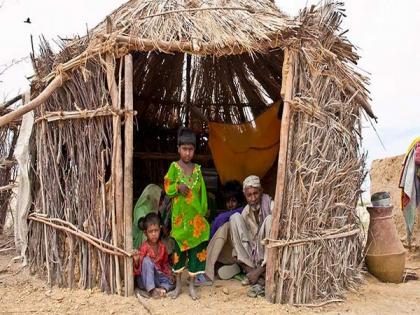Developing countries should invest $1.2 trillion to guarantee basic social protection: ILO
By ANI | Published: September 18, 2020 05:45 PM2020-09-18T17:45:31+5:302020-09-18T18:05:02+5:30
Developing countries should invest about 1.2 trillion dollars -- on average 3.8 per cent of their GDP -- to guarantee at least basic income security and access to essential health care for all in 2020 alone, according to a new policy brief by the International Labour Organisation (ILO).

Developing countries should invest $1.2 trillion to guarantee basic social protection: ILO
Developing countries should invest about 1.2 trillion dollars -- on average 3.8 per cent of their GDP -- to guarantee at least basic income security and access to essential health care for all in 2020 alone, according to a new policy brief by the International Labour Orgsation (ILO).
Since the onset of Covid-19 pandemic, the social protection financing gap has increased by nearly 30 per cent, said the brief titled 'Financing gaps in social protection: Global estimate and strategies for developing countries in light of the Covid-19 crisis and beyond.'
This is the result of increased need for healthcare services and income security for workers who lost their jobs during the lockdown and the reduction of GDP caused by the crisis.
The situation is particularly dire in low-income countries which need to spend nearly 16 per cent of their GDP to close the gap -- around 80 billion dollars.
Even before the Covid-19 crisis, the global community was failing to live up to the social protection legal and policy commitments it had made in the wake of the last global catastrophe -- the 2008 financial crisis.
Only 45 per cent of the global population is currently effectively covered by at least one social protection benefit. The remaining population -- more than 4 billion people -- is completely unprotected.
National and international measures to reduce the economic impact of the Covid-19 crisis have provided short-term financing assistance.
Some countries have sought innovative sources to increase the fiscal space for extending social protection like taxes on the trade of large tech compes, the unitary taxation of multinational compes, taxes on financial transactions or airline tickets.
With austerity measures already emerging even with the crisis ongoing, these efforts are more pressing than ever, the study said.
"Low-income countries must invest about 80 billion dollars, nearly 16 per cent of their GDP, to guarantee at least basic income security and access to essential health care to all," said Shahrashoub Razavi, Director of the ILO's Social Protection Department.
"Domestic resources are not nearly enough. Closing the annual financing gap requires international resources based on global solidarity," she said.
Mobilisation at the international level should complement national efforts, said the ILO report.
International financial institutions and development cooperation agencies have already introduced several financial packages to help governments of developing countries tackle the various effects of the crisis but more resources are needed to close the financing gap, particularly in low-income countries.
( With inputs from ANI )
Disclaimer: This post has been auto-published from an agency feed without any modifications to the text and has not been reviewed by an editor
Open in app